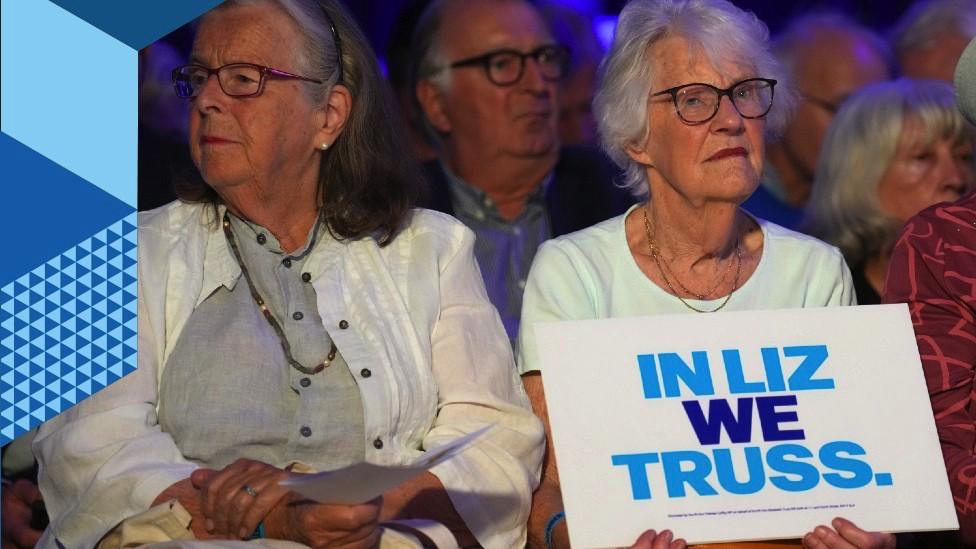Chris Mason: Noisy politics back after pause for mourning
- Published
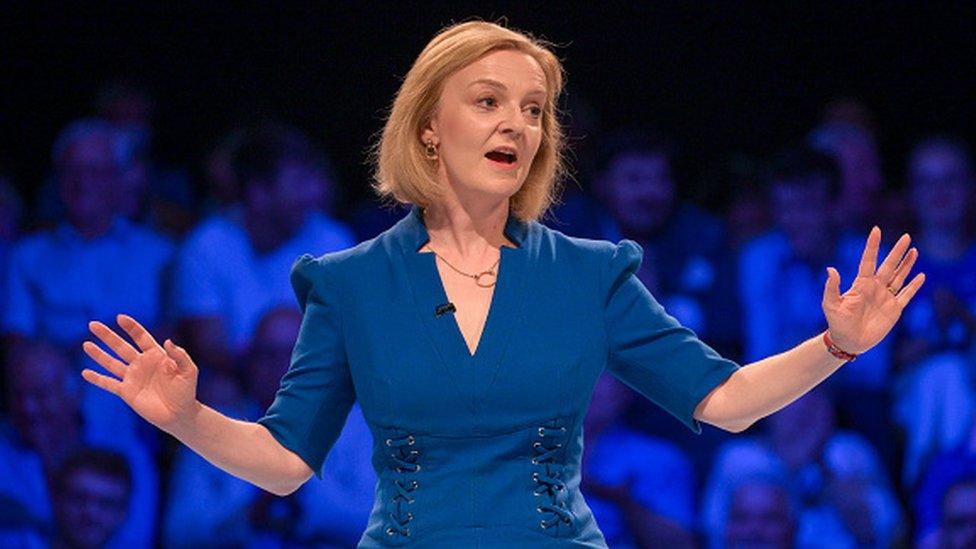
Prepare for the roaring return of politics.
Families, businesses and the country face grave threats: soaring prices, crippling fuel costs and the prospect of recession.
It is two-and-a-half months - 76 days - since Boris Johnson said he was resigning as prime minister, draining his already crippled government of its remaining authority.
And then, a little over 48 hours after Liz Truss became prime minister, the Queen died. What many described as a zombie government had been replaced by a Trappist one; politics understandably falling silent during the period of mourning.
But, with the funeral of Queen Elizabeth now over, the arguments resume - and the demands for action will be loud.
The prime minister is already on her first foreign trip in the job, at the United Nations General Assembly in New York.
While there, Ms Truss will meet plenty of world leaders, including US President Joe Biden, for a re-arranged one-on-one conversation that had originally been scheduled to happen in London.
No matter that it felt like the United Nations gathered in London for the funeral of the late Queen. This is the actual UN.
It will mean the returning political conversation will have a diplomatic air - in its opening few hours at least - rather than an intense domestic scrappiness.
But that will be back before you know it. This is a government that wants to give the impression that it is in a hurry, and it has catching up to do.
Policy blitz
So there will be a blitz of announcements between now and the weekend.
We're told the new government's overriding mission is delivering economic growth. And, in the short term, there are two other priorities: help with energy bills and a plan for the NHS.
Expect a sense of continuity Johnson on some issues, such as support for Ukraine.
And expect a hawkish scepticism about China from Ms Truss when she addresses the UN.
The long journey from the warmth of David Cameron taking Chinese President Xi Jinping for a pint just seven years ago to the current downright frostiness continues.
On the economy, there is a markedly different approach. The strategy is economic growth, even if the hoped-for means of delivering it cause a row.
It is in that context that we should see the plan to lift the cap on bankers' bonuses, an idea which, in isolation, would appear to many to be politically crazy when so, so many people are struggling to pay for their groceries or fill up their car.
But expect to hear ministers argue it means the very best (read very best paid bankers in the world) will want to ply their lucrative, economy-expanding trade here again, and in so doing - or at least so the theory goes - pay lots of tax in the UK.
The call for growth means we'll also hear about fracking and the licensing of drilling for oil in the North Sea, with the added justification of increasing the UK's energy security in an uncertain world.
These ideas, alongside the tax cuts promised by Ms Truss in her leadership campaign, will be at the core of the mini Budget presented by the new Chancellor Kwasi Kwarteng on Friday.
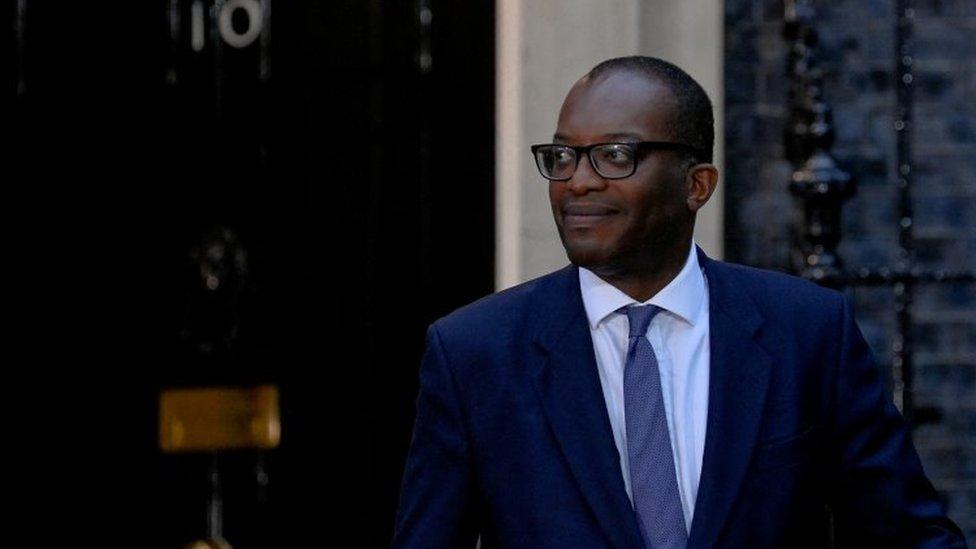
Chancellor Kwasi Kwarteng will deliver a mini Budget this week
Long gone will be the mantra of balancing the books from the era of Mr Cameron and George Osborne.
Instead, we see the prospect of falling taxes, a vast rise in spending to help with energy bills and little expectation of spending cuts elsewhere.
And so key among the tools and techniques deployed in the hope of economic growth: borrowing. Big time.
Incidentally, central to the Labour leader Sir Keir Starmer's diagnosis of Britain's contemporary problems is a fascinating overlap with his new opponent, Ms Truss - the sclerotic growth of the last decade.
But expect the suggested remedies and medicines from the two sides to differ considerably. And so the rows will be stark, the ideological dividing lines clear, and the stakes high.
Big issues
What then of energy bills and the NHS?
The public row about bills may have paused when the Queen died. But the pain did not.
One reporter friend of mine once told me about news that "it is not old until it's told".
The government's plan to help with energy bills has been announced but it was rapidly overtaken by events at Balmoral, where the Queen died.
WATCH: Liz Truss announces energy price guarantee for next two years
The precise nature and cost of the help hasn't been comprehensively explained, examined and scrutinised. In the coming days, that process will begin - and the plan to help businesses will be set out too.
The rather more sluggish help for companies compared to households is, those in government explain, because the energy market for businesses is much more complicated.
Despite Ms Truss's initial aversion to what she called "handouts", the scale of the crisis had the capacity to bankrupt people and firms - and so bankrupt her government before she began, making a big intervention inevitable.
And the intervention is big. It is considerably more expensive than the furlough scheme and, in reality, a blank cheque, for it is impossible to know what the overall cost will be given the fluctuating price of gas.
The argument inside government is that the alternative would have been more expensive, both in its social costs and on the exchequer.
And then there is the NHS. We can expect an announcement about plans for the winter from the new Health Secretary for England and Deputy Prime Minister Thérèse Coffey.
Waits to get an ambulance, waits to get a GP appointment, waits to get an operation are long, long and long for many.
That matters for millions and, politically, is potentially incredibly dangerous for ministers.
A tough winter for the NHS, the prospect of industrial action looming, added to what we are already seeing in the justice system, leaves some senior figures in the Labour Party pondering whether a critique of the government centred on examples of state failure - where the infrastructure of what ministers manage is simply not working - would hit home.
If examples of this really start to stack up, the political peril for the prime minister is obvious.
The best ministers can hope for is to keep the NHS out of the headlines. That would be a metric of success. But achieving it will, I suspect, be near impossible.
Challenges ahead
Ms Truss has inherited a party that has spent the summer scrapping with itself and where a chunk of her backbenchers are sceptical of both her and her economic strategy.
She inherits, too, a party that has been in government for 12 years.
Eternal youth is no easier to achieve in politics than it is in life, although Conservative MPs hope yet another facelift at the top, a new leader, may tempt the electorate to look at them afresh.
The opinion polls, for now at least, suggest the new prime minister has quite the challenge ahead.
Labour, the Scottish National Party and the Liberal Democrats each have their tails up and a general election is just two-ish years away.
From the silence and solemnity of the last 10 days, politics is now back and it's going to be noisy.
Related topics
- Published19 September 2022
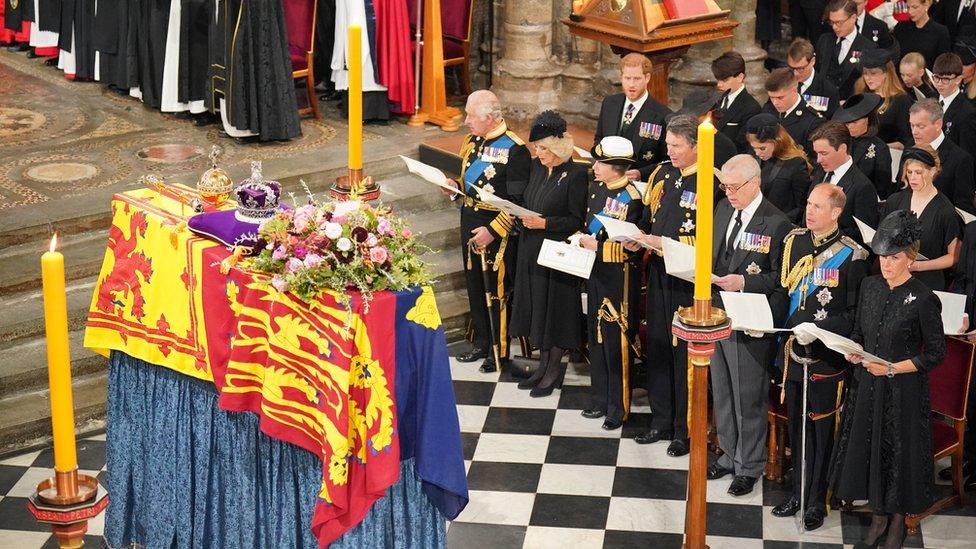
- Published19 September 2022
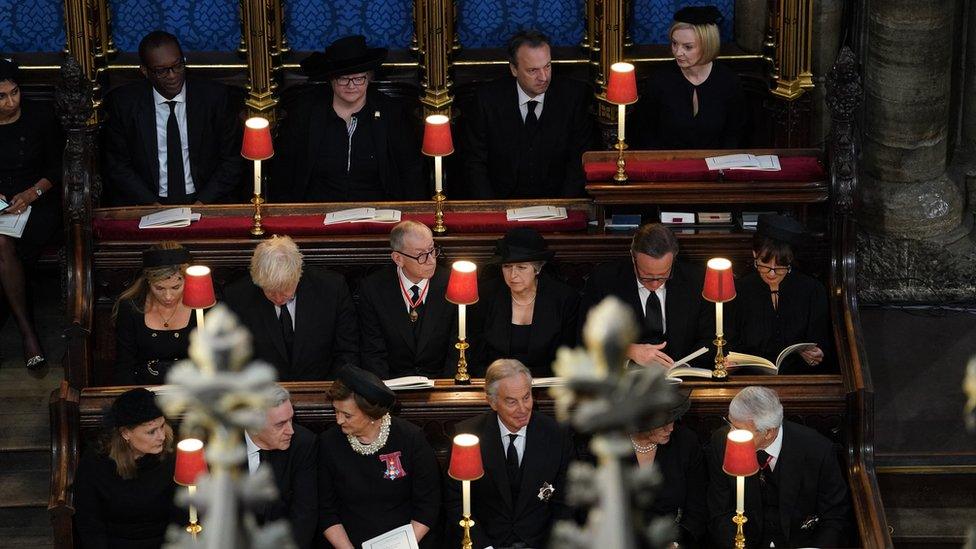
- Published5 September 2022
